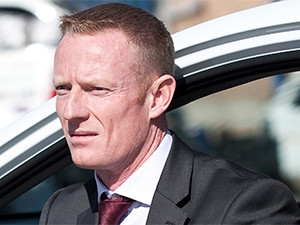ITWeb's Enterprise Mobility Summit 2016
This event will give you practical and tangible guidelines on how your organisation can become a mobile enterprise, facilitating your mobile enterprise journey. FREE attendance to end-users. REGISTER today. For sponsorship opportunities contact Debbie Visser. Avoid disappointment and book your seat now.
Mike Wanliss, head of technology and risk at Zebra Cabs, went into IT more or less by accident. Enjoying his freedom after matric, he chose not to study architecture and had planned to play field hockey in Spain. When his father gave him an ultimatum about getting a job, he accepted an offer at a small IT company in Krugersdorp.
This was in the 1990s, before the Internet went public and just as cellphones were coming to the market. In spite of himself, Wanliss became interested in the way personal computing and mobility were changing the way people lived and worked. The rest is history.
He has enabled Zebra Cabs' aim of being a conduit for impact investment through enterprise development in the metered taxi industry.
"A strategic approach is needed to convert digital and mobile technologies into a business asset. Zebra Cabs' technology IP is a significant attraction for the international impact investors that enable the company to be a conduit between financially underserved South Africans and the global investment community," said Wanliss.
"It is also the means whereby Zebra Cabs is helping to reinvent the metered taxi industry, which is at a tipping point. While the somewhat old-fashioned industry is being severely disrupted by technology-savvy entrants, it also has immense growth potential as people realise that using a cab is cheaper and more convenient than hiring a car - or, indeed, owning one," he continued.
"In that context, Zebra Cabs' passenger and driver apps are an important part of the way of empowering owner-drivers to broaden their reach into the market, pull in more fares and, thereby, afford the repayments on the vehicles they finance through Zebra Cabs," emphasised Wanliss.
According to Wanliss, Zebra Cabs has "thrown a lot of dev time at the app" since January, and launched it on April 1.
New versions are released every seven to ten days, "because with any app, there are bugs".
"A lot of functionality and features are in the pipeline. It's not that we trying to compete with Uber, but we're putting ourselves in that position. And there are features that I think will swing people our way pretty soon," he said.

But, important as the apps are in terms of developing an entirely new cab-riding market, they are only one component of Zebra Cabs' enterprise mobility. "Smartphone users are in the minority in a market that is still heavily feature-phone and cash-based. To give its owner-drivers access to the entire market, Zebra Cab's back office integration of conventional and smart technologies has to be smarter than any device currently in use. Getting cabs to the right places in the shortest possible time, ensuring that drivers earn revenue from at least 50% of their kilometres travelled, instead of the industry norm of 12%, and that their revenue is paid to them within hours instead of weeks, all hinges on how intelligent Zebra Cabs' systems are. The technology has to be transformative in concept as well as implementation" he concluded.
Wanliss will be presenting a case study on how Zebra Cabs' mobility starts in the back office in order to enable effective enterprise mobility strategy.
Share